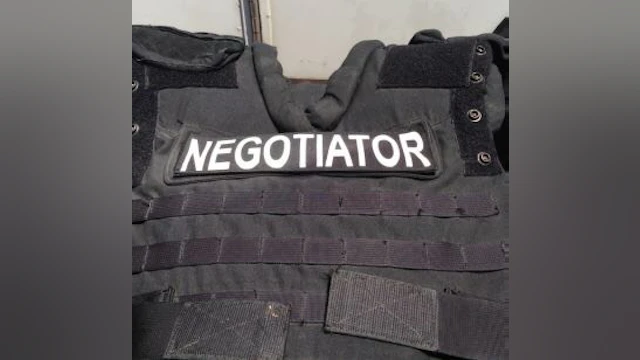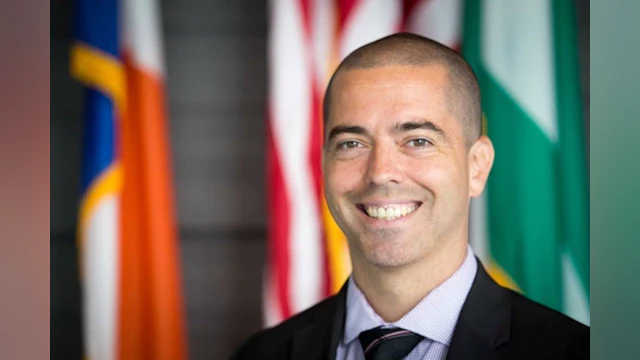Suicide is preventable, and one of the best ways to help someone experiencing suicidal thoughts is to engage them in conversation. In my work as a crisis negotiator in law enforcement, I have been reminded time and time again that communication skills are crucial to helping someone in need.
Law enforcement crisis communication experts use a set of skills known as active listening to demonstrate empathy, build rapport, and encourage someone to get more help if needed. The good news is you don't have to be an expert crisis negotiator to use active listening to help someone.
Feelings associated with a suicidal crisis include hopelessness, helplessness, isolation, and the sense that there are no other options. You can use active listening skills -- along with some compassion -- to let the person know that there is hope; they are not alone; and that they do have options.
PRIME SOS is an often-used acronym to help you in recalling the specific micro skills associated with active listening: paraphrase; reflect/mirror; “I” messages; minimal encouragers; emotional labeling; summarize; open-ended questions; and silence:
Paraphrasing: This includes repeating what the person said in a much shorter format, in your own words, while also making sure not to minimize what the person has experienced.
Reflecting/Mirroring: When the person is finished speaking, reflecting and mirroring involves repeating the last few words the person said. If the person concluded by saying, “…nothing has worked,” you would say, “Nothing has worked?” This helps confirm with the speaker that you are listening and understand what is being said.
“I” Messages: Using “I” messages helps demonstrate how you feel based on what the person has said or done. For example, you could say, “I feel worried when you say life is pointless because I am not sure what you are going to do.” This provides a “timeout” or reality check to the other person, letting them know you are concerned. Make sure to be aware of your tone, so as to not to do this in a way that sounds aggressive or creates an argument.
Minimal Encouragers: Further establish the building of rapport by using simple verbal cues like, “Mmm,” “Okay,” and “I see,” as well as nonverbal gestures like head nodding, to subtly invite the person to continue speaking. This also shows that you are paying attention.
Emotion Labeling: It is important to acknowledge the emotions of the person speaking. Identifying the person’s emotions validates what they are feeling, instead of minimizing it. During a suicidal crisis, people act with their emotions rather than operating from a more rational perspective. By labeling and acknowledging their emotions, you can help restore the balance.
Examples: “You sound hurt;” You seem sad.
Note that in the examples above, you are demonstrating that you understand what the person is feeling, rather than simply saying, “I understand.”
Summarize: Summarizing is an extended version of paraphrasing in which you wrap up everything the person has said, being sure to include the elements important to the person as well as acknowledging their emotions. Summarizing validates for the person that they have been heard and understood. This is critical to do, because it can help bring a sense of relief to the person, and reduce the possibility of their taking actions solely dictated by their emotions.
Open-ended Questions: Asking open-ended questions encourages the person to speak longer. This can help diffuse the tension, as well as provide you with valuable information and insight into their perspective.
Silence/Effective Pauses: Expert hostage and crisis negotiators listen much more than they speak. Part of this sort of expert listening includes utilizing silence, and pausing before taking your turn to speak. Silence allows the other person to continue speaking. Pausing prior to speaking helps calm the situation.
Using these different micro skills together increases their effectiveness. For example, try using an emotional label, and then follow it up with an open-ended question. (“You seem sad. What’s happening?”)
Keep in mind that by using these skills, you are not solving the person’s problems. Rather, you are showing them through your words and actions that you care and are there to listen.
Time is considered a crisis negotiator’s greatest ally. Active listening not only demonstrates empathy and builds rapport, it also slows the situation down, rather than trying to rush towards a resolution and solve the person’s problems. It can also help to remind you that you do not have the burden of being a problem-solver. Instead, you are there to listen and help the person explore options other than taking their own life.
Remember, you don’t have to be an expert to help someone. Just being there for them and letting them know you care can provide the support they are looking for. Using active listening skills can help you provide that support in a smart, calm way.

Jeff Thompson, Ph.D., is a NYPD detective, trainer and researcher. His law enforcement work includes designing and teaching crisis communication as well as being a crisis/hostage negotiator. He has taught crisis communication to a variety of audiences including law enforcement, governmental agencies, physicians, judges, and the general public. He has his doctorate in conflict resolution and his MS in Negotiation. Follow him on Twitter at @JeffTPhD. He can be reached at [email protected].
This article is adapted from Active Listening: Using “PRIME SOS” To Recall The Critical Skills of Crisis & Hostage Negotiators. This article does not represent the opinion of any organization Dr. Thompson is employed by or a member of.
